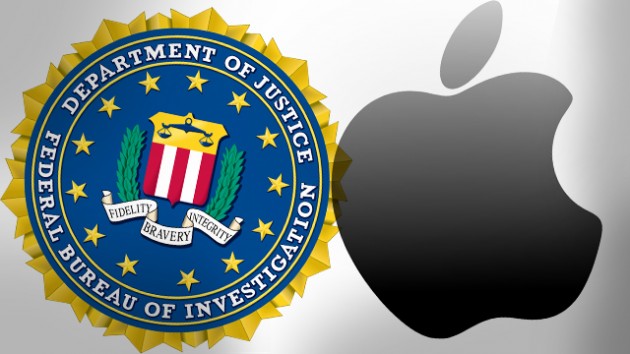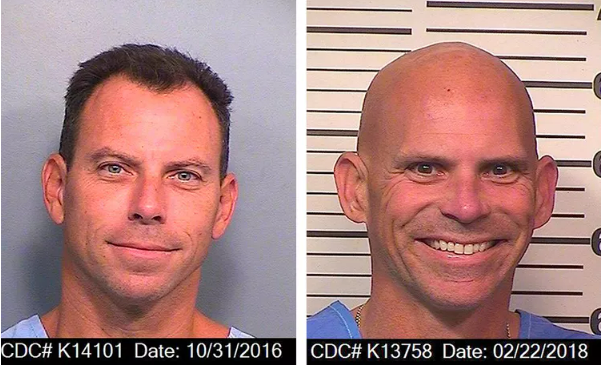Larger Battle Looming Now that Apple vs. FBI Case Settled
With the exponential increase of the ubiquity of technology, the issues concerning digital devices and the privacy or security related to them are growing just as fast. While the Constitution never explicitly mentions “privacy,” many interpret this idea from several places within it. The government is generally thought to respect the privacy of its citizens, but at what point should privacy be sacrificed in the name of national security?
December 2, 2015, Syed Farook and his wife, Tashfeen Malik, shot 14 and injured 22 in a shooting at the San Bernadino Department of Public Health, Farook’s place of employment. They also left a string of pipe bombs that failed to detonate. FBI investigations discovered that the two were not directly affiliated with any terrorist group, but instead were “inspired” by these groups. During the subsequent investigations, police recovered the encrypted blue county-owned Apple iPhone 5C issuedto Farook for work-related matters. Farook and Malik had managed to destroy their personal cell phones.
Encryption is a safety device which encodes contents of digital platforms in order to make it more difficult to read by unauthorized parties attempting to access information from the phone. Most all tech and phone companies encrypt their customer’s devices and data. Simple four digit codes can protect a lot of information, especially considering that the only people who know their code are the phone owners. The phone companies almost never know the codes.
The iPhone’s advanced security features made the FBI unable to access information from Farook’s work phone. As a result, the FBI requested that Apple create a “backdoor” to the iOS operating system, essentially a new version of the software to be installed on the phone, thereby deactivating certain security features. Apple declined, fearful of the potential this type of software has should it be discovered or replicated by hackers, or other cyber criminals. There has been no precedent for this specific type of issue.
On February 16, a judge ordered that Apple comply with the order, which they objected to, with Apple CEO Tim Cook declaring that it would “undermine decades of security advancements.” Apple defended their opposition, declaring that such software would create a security risk for customers. Ten days before the February 26 deadline to comply, Cook released a statement, declaring that the request “has implications far beyond the legal case at hand.” The United States Department of Justice (DoJ) filed a renewed application, stating Apple install, then remove and destroy the “backdoor” software on its own terms, only allowing the FBI to extract the data.
On February 25, Apple laid out its legal defense, saying that the order was a violation of the First Amendment, claiming computer code as “speech.” Apple’s head lawyer, Ted Olson voiced the concern that “if we’re saying that there’s a serious threat, throw out the Constitution in order to prevent that threat, where do we draw the line?” The DoJ disputed Apple’s claims that writing code is an extension of free speech.
Apple revealed four methods to access the contents, but these were ruled out by errors the FBI made during the investigation. Before contacting Apple, the FBI requested that San Bernadino County reset the code to Farook’s iCloud account to retrieve the data from the cloud, rather than the phone. The reset, however, disabled the phones ability to back-up recent data to the cloud – the data that the FBI is in search of. Now the only way of retrieving the phone’s contents is by direct access to it.
Pew Research Center, in a survey conducted over February 18-21 among over 1,000 adults found that 56% of Republicans and 55% of Democrats are siding with the FBI.
A hearing that was originally set for March 22 wasn postponed, with the DoJ claiming they may have found a way into the iPhone without Apple’s help. Six days later it was announced that the FBI had indeed found a way into the iPhone. The DoJ dropped the suit that day, claiming it had used the help of a third-party, though this was the extent of the details provided. Now Apple must be concerned over what methods were used to unlock the iPhone and if these methods could be used to compromise the security of anyone else’s iPhone or any of Apple’s other products. Apple’s worries have shifted from facing a legal battle with the government to facing an unprecedented and undefined threat.
The FBI and DoJ now have another set of problems themselves. One theory claims that they have had the means to unlock the iPhone the entire time and were simply looking for a free pass to a catch-all iPhone software. The FBI is denying ulterior motives, as on Monday the bureau’s Director James Comey said, “The San Bernadino case was not about trying to send a message or set precedent; it was and is about fully investigating a terrorist attack.”
If this theory is not true, however, these government entities now risk seeming incompetent. The one thing that the uncertainty of their methods produces is a likely increase in tech companies’ security, now frightened of this unknown breach. Apple itself has confirmed strengthening the security of their devices.
This specific discrepancy is far from over, as the FBI is under pressure to release the means of its security breaking. The overall issue has also just begun with at least 12 other similar cases currently in motion. The newest issue in the history of the United States is now a battle over the delicate relationship between burgeoning technology in our fast-growing computer age and the government’s need to maintain security.











